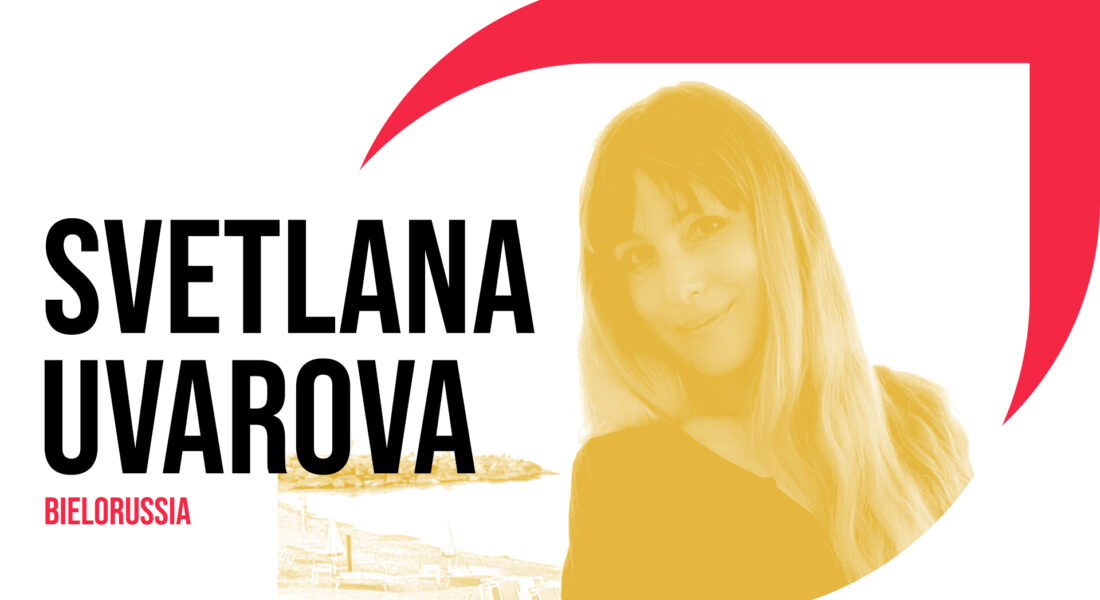
I had to change myself, and become more open, flexible and empathetic, and I like the result
Svetlana is from Belarus and is 41 years old. She has lived in Turin since 2013 and describes herself as “a Turin native”. She is fluent in five languages: Belarusian, Russian, English, Italian, and German (which she has also taught), and for work, she has also learned some French and understands both Ukrainian and Polish.
After graduating at the age of 21 with a degree in Pedagogy and Foreign Languages and Literature in her home country, she immediately began working, initially in the school, as a teacher, and then moving into the logistics sector, realizing the great potential for professional and economic growth. Belarus is indeed a country of great passage of goods between Europe and Asia, and Svetlana began working for a transportation company, with the opportunity to travel extensively abroad as well, to Germany and Holland, managing the company’s international contacts, “a good challenge but a bit stressful, and although I really enjoyed it, I realized I couldn’t do it for long”.
At some point, Svetlana realized that she had reached the highest professional level that a woman in her 30s could achieve in Belarus: it would not have been enough just to change jobs but she would have had to change countries.
She explains that after the age of 30, life for a Belarusian woman becomes limited unless she is married and has at least two children: “Society does not allow you to grow up. Instead, as I travelled, I found that in Europe and the United States, no one gives importance to your age!”
In 2013 Svetlana left with the idea that she could always go home; she did not expect Covid-19 and war, reasons why she had not seen her family for three years.
Her desire was to move to a country with a pleasant quality of life, climatically, culturally and economically: “Despite the difficulties, I love my country, but I missed the sun and the sea, and here in Italy with a two-hour drive I can spend a weekend at the beach!”
Arriving in Turin, she enrolled in the Master’s degree program in Foreign Languages for International Communication: “A second degree was important, I needed it to integrate, and after German learning Italian was a pure pleasure: it’s a melodious language!”.
To support herself in college, she began working for a metal-mechanical company in the province of Vercelli where she still works in sales, managing customers and international relations, especially with China and the United States.
“Working in the province of Vercelli, I also learned some Piedmontese dialect to communicate and integrate with colleagues!”
The beginnings in Italy were not easy. Among the negative aspects, Svetlana denounces the bureaucratic delays in being able to open a bank account or rent a house, but above all, it was difficult to always have to prove oneself to help others overcome the stereotype of the Eastern woman who can only be a domestic helper or caregiver.
So she tried to bring her Italian friends closer to the Belarusian and Russian community in Turin, initially through gastronomy and cuisine, then by taking them to concerts and music collective events.
With the war, however, everything became complicated: attitudes toward Russian culture and literature changed:
“I consider myself Russian because we have the same history, it is important to work so that the Russian people and people are not confused with their politicians, and to tell and show that we are people of peace!”
Today Svetlana is happy and plans to stay in Italy, which she considers the country with the richest artistic and cultural heritage, and whose cuisine, long summers and short winters she greatly appreciates. “I am glad I left my country, I had to change myself, and become more open, flexible and empathetic and I like the result. Even though the road to change is long, I like the way I am becoming – I am taking the best parts of my origins and the host country!!!”


